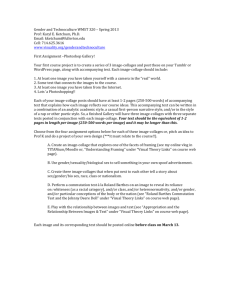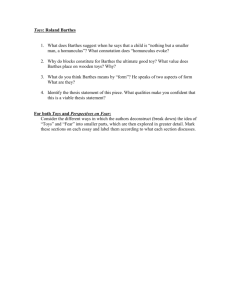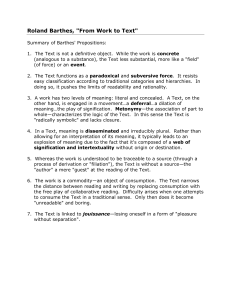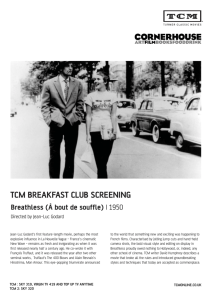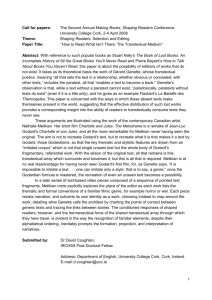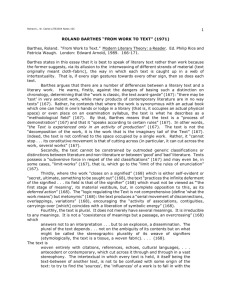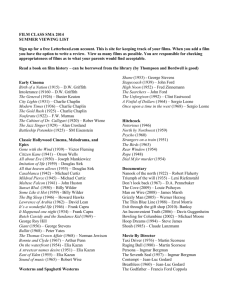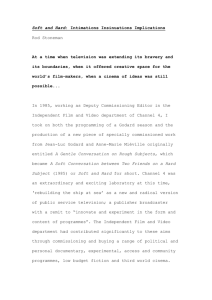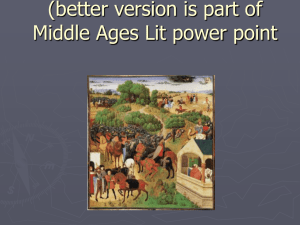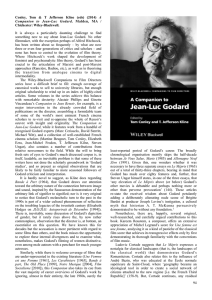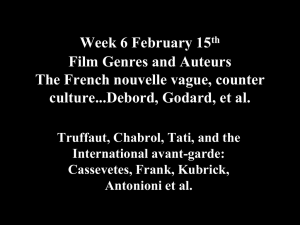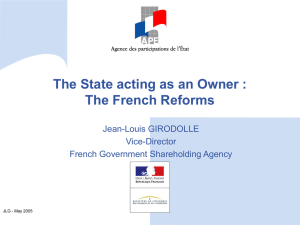presentation (8kb ppt)
advertisement
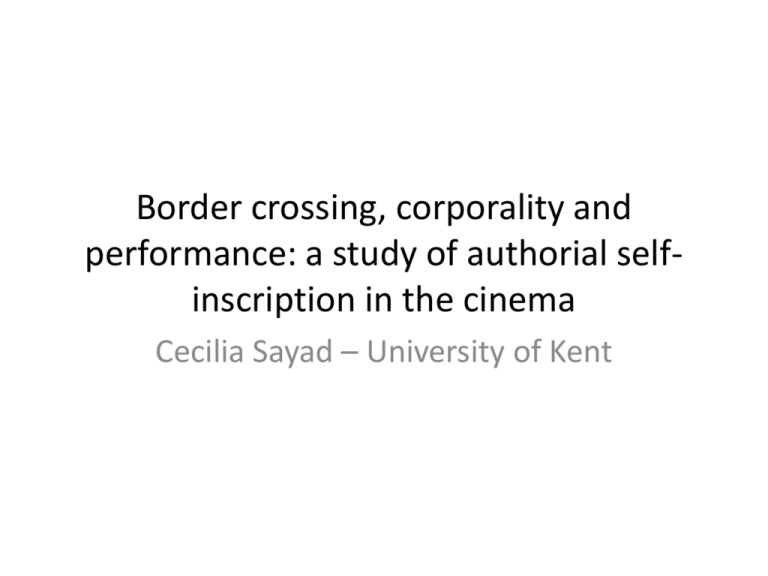
Border crossing, corporality and performance: a study of authorial selfinscription in the cinema Cecilia Sayad – University of Kent ‘The fact is (or, it follows) that writing can no longer designate an operation of recording, notation, representation, “depiction” (as the Classics would say); rather, it designates exactly what linguists […] call a performative, a rare verbal form (exclusively given in the first person and in the present tense) in which the enunciation has no other content (contains no other proposition) than the act by which it is uttered’ - Roland Barthes, ‘The Death of the Author’ • Jean-Luc Godard: voice-over narration, essay film (Two or Three Things I Know About Her, 1967) • Woody Allen: screen performance, fool/standup comic, fictional narrative (Annie Hall, 1977) • Roland Barthes: – ‘The Death of the Author’ (1968) – The Pleasure of the Text (1973) • Mikhail Bakhtin – ‘Forms of Time and of the Chronotope in the Novel’ (1937-1938) ‘For example: the author may appear in his text (Genet, Proust), but not in the guise of direct biography (which would exceed the body, give a meaning to life, forge a destiny)’ – Roland Barthes, The Pleasure of the Text ‘Figuration is the way in which the erotic body appears (to whatever degree and in whatever form it may be) in the profile of the text … Or finally: the text itself, a diagrammatic and nonimitative structure, can reveal itself in the form of a body’ – Roland Barthes, The Pleasure of the Text • Diegetic / non-diegetic • Fiction / real • Filmic / extrafilmic authorial assertion and divestiture, palpability and disappearance, exposure and masking ‘… it is Godard’s very phenomenological idea that the artist is not properly a creator, but rather the site where words and visual forms inscribe or install themselves’ – Kaja Silverman, ‘The Author as Receiver’ (on JLG/JLG: Self-Portrait in December) ‘I look at myself filming, and people hear me think. Put shortly, this is not a film, it’s an attempt to film’ – Jean-Luc Godard, Jean-Luc Godard par Jean-Luc Godard ‘The death of the author is thus better understood as an ongoing process than as a realisable event. Once we make this semantic adjustment, the crucial question to ask Godard is no longer whether he succeeds in laying his ghost definitively to rest in JLG/JLG. It is, instead, whether he is able to sustain himself there and elsewhere in the mode of dying’ – Kaja Silverman, ‘The Author as Receiver’ ‘Essential to these three figures [the rogue, the clown and the fool] is a distinctive feature that is as well a privilege—the right to be ‘other’ in this world…’ ‘They grant the right not to understand, the right to confuse, to tease, to hyperbolize life; the right to parody others while talking, the right not to be taken literally, not “to be oneself”’ – Mikhail Bakhtin, ‘Forms of Time and of the Chronotope in the Novel’ ‘At last a form was found to portray the mode of existence of a man who is in life, but not of it, life’s perpetual spy and reflector; at last specific forms had been found to reflect private life and make it public’ – Bakhtin, ‘Forms of Time and of the Chronotope in the Novel’ ‘“The ‘Now’ agenda defines standup comedy”. Straight drama shows events from another place and another time, but with standup the events happen right here in the venue’ – Oliver Double, Getting the Joke ‘… author’s metalepsis, which consists of pretending that the poet “himself brings about the effects he celebrates”’ ‘…any intrusion by the extradiegetic narrator or narratee into the diegetic universe (or by the diegetic characters into a metadiegetic universe, etc.), or the inverse (as in Cortázar) produces an effect of strangeness that is either comical … or fantastic’ – Gérard Genette, Narrative Discourse
